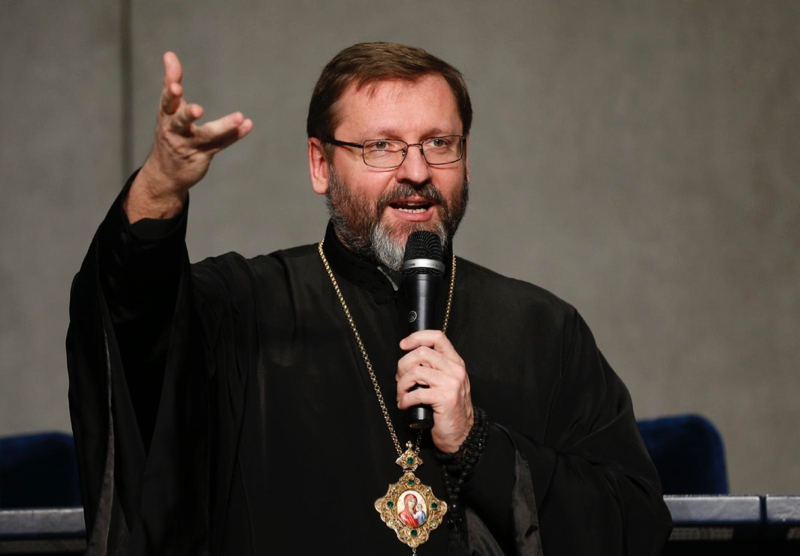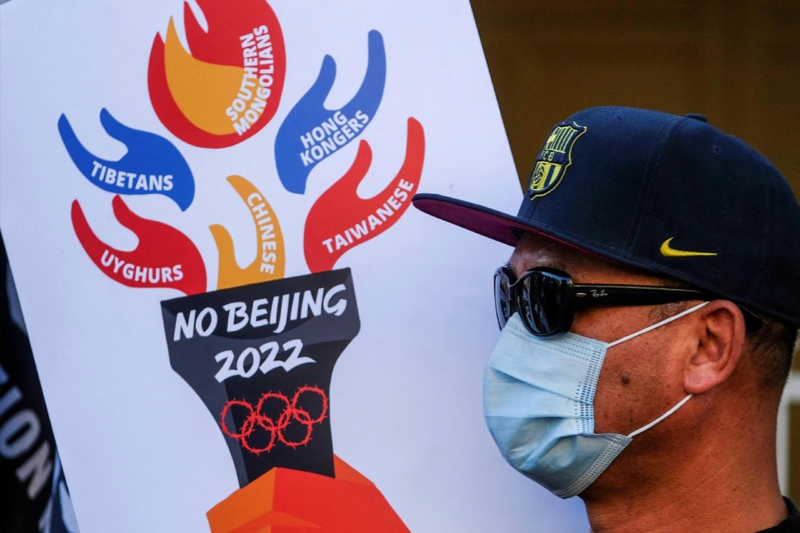Showing his special concern for the Vatican’s relations with Beijing, Pope Francis wished success for the Winter Olympics in China that opened on 4 February. Speaking at his General Audience on 3 February, he said: “Sport, with its universal language, can build bridges of friendship and solidarity between people and peoples of every culture and religion.”
He has made no references to the Africa Cup of Nations that ended in Yaounde, Cameroon, on Sunday, though in June 2021 he had offered his blessings to the delayed Euro 2020 football tournament. The massively policed winter games opened in Beijing under the shadow of accusations of human rights abuses – including repercussions for participants who highlight them – and the Covid pandemic.
A Uighur torchbearer for the lighting of the Olympic flame stirred international controversy, given allegations that the Chinese Communist Party (CCP) has perpetrated genocide against the Uighur Muslims in the north-eastern region of Xinjiang.
In Hong Kong, a 75-year-old activist was re-arrested on the opening day of the Olympics. Koo Sze-yiu wanted to protest publicly about imprisoned members of Hong Kong’s pro-democracy movement.
In Guangzhou, a Christian who has been in prison for months will be put on trial on 11 February for calling for prayers last June for those who died in Tiananmen Square in 1989. He stood at a subway and held a placard reading: “June 4, pray for the country.”
Just before the games started, a coalition of Christian leaders called on Hong Kong’s authorities to grant an amnesty to Jimmy Lai and other democracy activists, detained for subversion under the 2020 security law. Cardinal Charles Bo of Myanmar, president of the Federation of Asian Bishops’ Conferences, was a signatory.
Provoking international concern, the Chinese-language press has started to target 90-year-old Cardinal Joseph Zen Ze-kiun, bishop emeritus of Hong Kong and a prominent supporter of the local pro-democracy movement.
Four articles appeared in Ta Kung Pao, a government newspaper, accusing the cardinal of inciting students to oppose a series of government measures in 2019. Such articles are often a prelude to arrests or other means of silencing a targeted person. Meanwhile, in an interview with KNA in Bonn, Katharina Wenzel-Teuber, editor of ‘China Heute’, said that Chinese President Xi Jinping had taken the “sinicisation process” that he is using to control religions to a new level.
Xi now demands that all followers of a religion “identify themselves” with the “Chinese Fatherland, the Party and with Socialism,” she said. “That, in my opinion, now refers to people’s inner attitude and therefore goes further than a purely external adaptation,” Wenzel-Teuber commented. Chinese children and those under 18 are forbidden to go to church or receive religious instruction, Wenzel-Teuber added. “That makes handing on the faith a huge challenge.” Asked if she thought the 2018 provisional agreement between the Vatican and Beijing on the appointment of bishops would be prolonged in October, she replied: “The success of the agreement is very limited. Only six new bishops have been newly consecrated with the agreement of both sides. In 2018, about 40 sees were vacant.”
On 6 February, the human rights activist Ben Rogers warned that the Vatican could be preparing to establish formal diplomatic relations with Beijing. He pointed to the decision to transfer Mgr Arnaldo Catalan, chargé d’affaires in Taipei since 2019, from Taiwan’s capital to Rwanda, where he will serve as nuncio. This leaves the Taipei nunciature without high-level diplomatic representation.
At the same time, Francis is moving Mgr Javier Herrera Corona, head of the Holy See Study Mission in Hong Kong, to become nuncio in Congo and Gabon. On his Twitter account, Rogers said if the Vatican was on “the brink of establishing diplomatic relations” with the Beijing government, “it would be totally unacceptable and outrageous”. “Catholics must speak out with one voice around the world to stop this,” he said.



 Loading ...
Loading ...